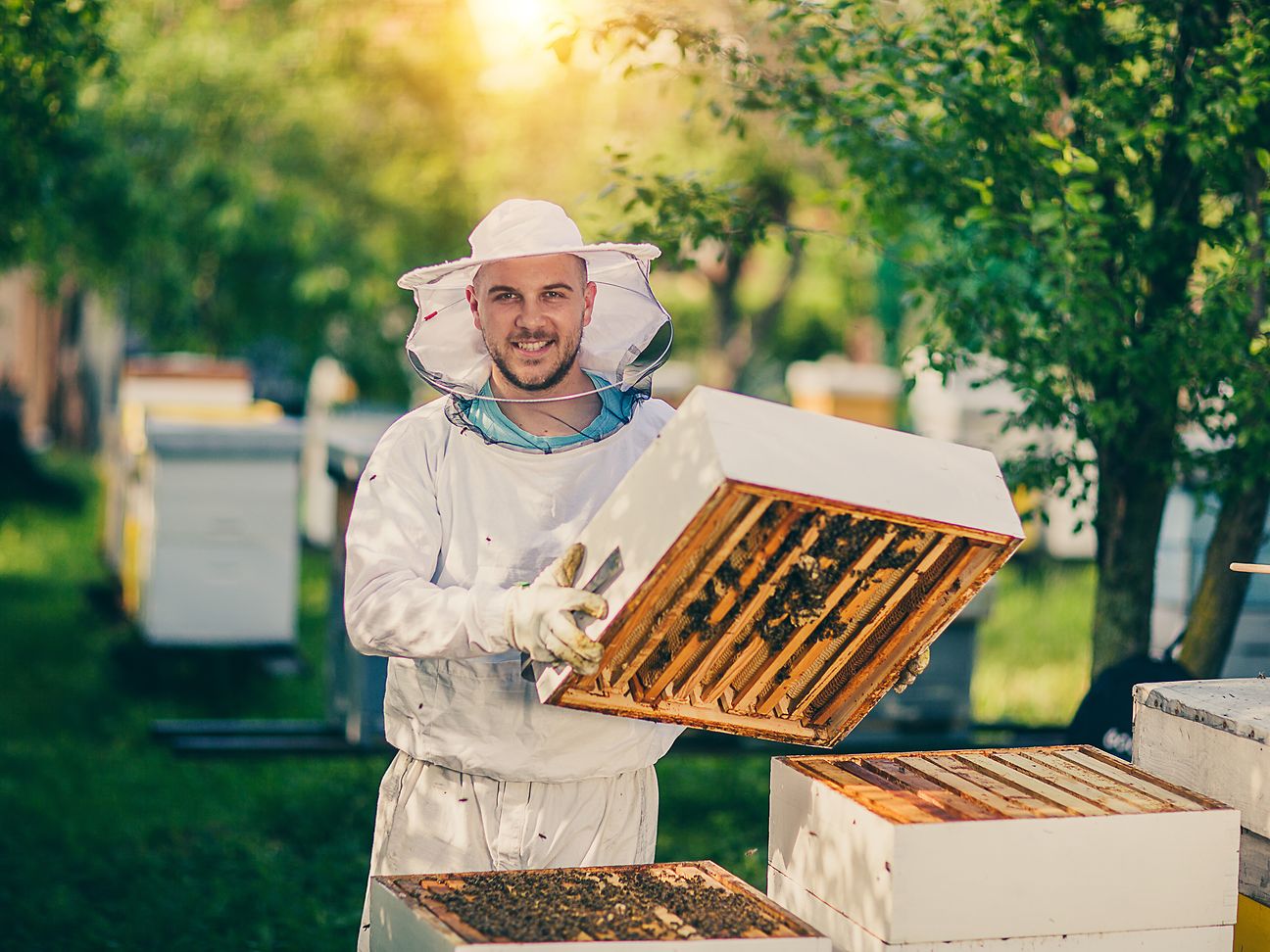

When beekeepers go on vacation, who watches their bees?
During vacation time, people like to take vacations – and beekeepers are no exception. But when beekeepers are on vacation, who watches their bees? The smart beehive is providing a new solution to this problem. It enables beekeepers to watch their bees from afar.
Germany is sweltering right now, under temperatures that keep soaring over 35 degrees Celsius. Hot weather can pose a risk for bees, which play vital roles in natural systems and in the biological balance. Who takes care of honeybees when their beekeepers are away, enjoying well-earned vacations?
Bees never go on vacation, but beekeepers do
There are over 120,000 beekeepers in Germany. Most of them pursue beekeeping as a hobby. All in all, they take care of about 900,000 colonies of bees. What happens to their bees when they go on vacation? Unlike dogs and cats, which have their kennels and catteries, bees can't simply be boarded. So what options are available? How about having a nice neighbor look in on the bees regularly? Or having another local beekeeper substitute for you?
Or how about this: connect the world's smallest "industrial plants" – each with some 40,000 "employees" crammed onto half a square meter – with the Internet of Things (IoT). When you do that, you can monitor your bees at your leisure, directly from your vacation site. It's all made possible by beehive-integrated smart IoT systems that work in combination with Deutsche Telekom's narrowband network for machines and sensors (NB-IoT).
A "baby monitor" for bees, on the Internet of Things
The beehive-integrated system can be thought of as a "baby monitor" for bees. It has sensors that monitor temperature and humidity within the beehive and the beehive's total weight. It also keeps tabs on noise levels within the hive, which are key clues to bees' activity levels and health.
Deutsche Telekom collects the beehive data, processes them for the beekeeper and uploads them to the cloud. The data include indicators that enable beekeepers to assess any problems, such as diseases, and predict the likelihood of future threats. Vacationing beekeepers use their smartphones and tablets to check the data in the cloud. They take action only as called for, thereby avoiding unnecessary trips to their hives, minimizing the added workload for their vacation substitutes – and minimizing the disturbances for their busy bees. That last benefit is especially important, since a pound of honey, in terms of bee miles, is equivalent to three trips around the world.

